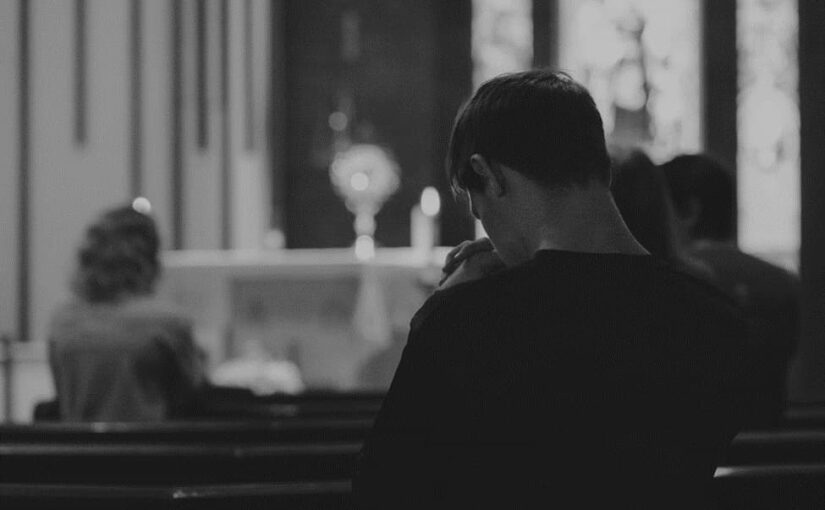Religion has long been a cornerstone of human civilization, shaping cultures, morals, and social structures. For centuries, religious traditions have been passed down from one generation to the next, providing a sense of continuity and identity. However, as societies evolve, so too do the ways in which younger generations engage with faith. This article explores how contemporary youth relate to religion, examining the shifts in beliefs, practices, and the broader implications for religious institutions.
The dynamics between youth and religion are becoming increasingly intricate. In numerous regions, younger generations are moving away from traditional religious affiliations. Research indicates a notable increase in religious “nondenominationalism,” where individuals identify as spiritual but not necessarily connected to established religious institutions. This trend aligns with broader societal movements toward individualism and secularism, where personal spirituality often holds more significance than adherence to traditional doctrines.
A key factor driving this shift is the evolving nature of religious identity. Unlike earlier generations, many young people today perceive religion as just one element of their identity rather than its core. For them, spirituality is frequently experienced in a more personalized and adaptable manner. This transformation is supported by the greater availability of diverse information and ideas through the internet. Platforms like social media, online forums, and digital communities offer spaces for exploring and discussing various spiritual practices and beliefs, leading to more eclectic and individualized approaches to faith.
Skepticism Towards Organized Religion
Moreover, the decline in religious affiliation among youth can be attributed to the perceived irrelevance of traditional religious institutions. Many young people express skepticism about organized religion, citing concerns about hypocrisy, exclusivity, and the institutional focus on preserving power rather than addressing social justice issues. This critique is often tied to broader critiques of societal institutions, reflecting a generation that values transparency, inclusivity, and social responsibility.
In addition to a decline in traditional religious affiliation, there is also a notable rise in “religious pluralism” among younger people. Exposure to different cultures and belief systems through global communication and travel has broadened the religious landscape. Young people today are more likely to explore and integrate practices from various traditions, creating a more syncretic approach to spirituality. For instance, elements of Eastern religions like Buddhism or Hinduism are increasingly incorporated into personal spiritual practices in the West.
The rise of secularism and religious pluralism among youth also intersects with broader social trends. Issues such as gender equality, LGBTQ+ rights, and racial justice are significant to many young people, and these issues often come into conflict with traditional religious teachings. As a result, some youths find it challenging to reconcile their values with those of established religions. This tension can lead to a reevaluation of religious beliefs or a preference for spiritual practices that align more closely with their personal values.

Emerging Forms of Spiritual Engagement
However, the relationship between youth and religion is not uniformly negative. While some young people are drifting away from organized religion, others are finding new ways to engage with faith. There is a growing interest in “spiritual but not religious” (SBNR) approaches, which emphasize personal experience and connection over institutionalized belief systems. This trend reflects a desire for authenticity and a deeper sense of meaning, even if it does not conform to traditional religious frameworks.
Additionally, some religious communities are actively seeking to engage with younger generations by adapting their practices and messages to better resonate with contemporary values. Many religious organizations are incorporating social media and digital platforms into their outreach efforts, creating online spaces for discussion and community building. This adaptation aims to make religious teachings more accessible and relevant to a younger audience, often focusing on themes like social justice, environmental stewardship, and personal growth.
Interfaith dialogue and community service are also areas where younger people are actively involved. Many youth find meaning in collaborative efforts that transcend denominational boundaries, working together on social issues such as poverty, climate change, and humanitarian aid. These activities often reflect a broader commitment to ethical living and collective well-being, demonstrating that religious and spiritual values can inspire meaningful action even outside traditional institutional contexts.
Educational institutions play a role in shaping how young people relate to religion as well. Many schools and universities are increasingly inclusive of diverse religious perspectives, offering courses and programs that explore various religious traditions and philosophies. This exposure can foster a more nuanced understanding of faith and encourage students to engage with spirituality in more thoughtful ways. The influence of family on religious identity continues to be pivotal. Parents and caregivers who prioritize religious or spiritual practices play a crucial role in shaping their children’s perspectives on faith. Yet, the evolving nature of family dynamics—marked by a wider range of family structures and diverse values—also affects how religious beliefs are passed down and embraced by younger generations. This variability reflects the broader changes in societal norms and personal beliefs, highlighting how family contexts can both reinforce and reshape spiritual identities.
In summary, the relationship between youth and religion is characterized by a complex interplay of factors, including individualism, secularism, and pluralism. While traditional religious affiliations may be declining, new forms of spirituality and engagement are emerging. Young people today are redefining how they connect with faith, often seeking personal meaning and alignment with contemporary values. This evolving landscape presents both challenges and opportunities for religious institutions and individuals alike, as they navigate the changing terrain of belief and practice.

